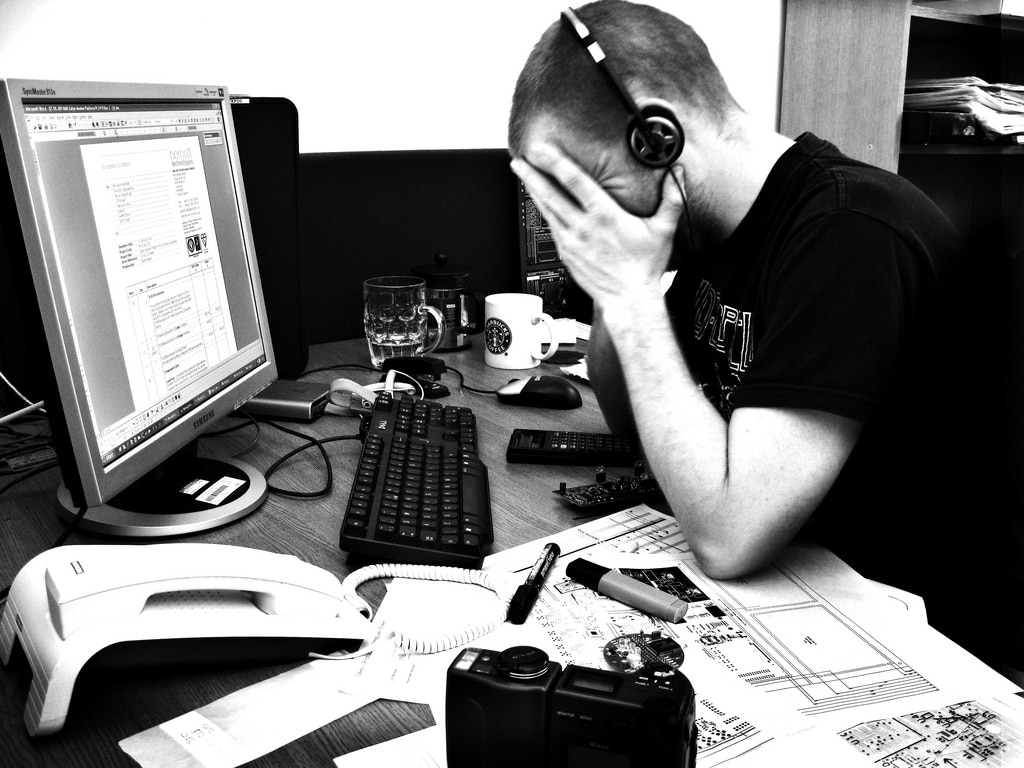1) Prioritize your goals based on return on investment (ROI):
There’s no sense in spending more time on something that will give you less payoff. Spend the time to determine what gives you the most bang for your buck, and then go out and get it done. Remember to work backwards from your bigger picture goals into achievable tasks. Depending on the magnitude of the goal, set some milestones 30, 15, or even 5 days out, then shrink that down into specific tasks that can be accomplished in under 2 hours. Don’t forget to reassess these goals at least once a quarter.
2) Create a “To-do” list:
Spending 5 minutes at the end of each day to update your needs for tomorrow and beyond can go a long way. This will allow you to pick things up almost immediately and keep you from falling behind on tasks that may slip your mind. Equally as important, spending 5 minutes at the beginning of the day can get you in the mindset that will allow you to accomplish what you need to get done. Remember to keep the list handy and cross off tasks as you complete them. Not only is it satisfying, but crossing off a task can be the motivation to accomplish the next one.
3) Designate time for phone calls and emails:
With respect to the nature of your occupation, try to make all of your phone calls at a specified time each day. Playing phone tag can be an enormous time suck. When you have to return calls, try to make those at the end of each day. Similarly, if you’re constantly checking emails every time your Outlook pings you, you’ll never get anything done. While you don’t want to neglect phone calls or emails so much that you’re unresponsive, it’s okay to sometimes let the phone ring or have a few emails pile up when you’re in the middle of accomplishing an important task. You’ll never accomplish what you need to when you’re only playing defense.
4) Choosing email vs. phone calls:
There’s a time and a place for emails and a time and a place for phone calls. When you’re making a statement, an email can be very effective and efficient. However, if the conversation requires a decent amount of dialogue, pick up the phone. A lot of times people fall into the trap of emailing, sometimes over days, when a phone call could get the job done in 5 minutes. Writing and response time can really take time away from more important tasks.
5) Centralize your information:
Be sure to have all of your devices synchronized. There’s nothing like having to check multiple devices or emails to get the same information. Similarly, make sure you only have one calendar. You would hate to schedule an appointment and forget to block off that time because you scheduled it on your phone but not in Outlook. Also, when you check your email on your smart phone, don’t forget to completely follow up or to mark the email as “unread” if you don’t/can’t. You don’t want to read your email on the road and forget to respond the next day because it was marked as “read” in your inbox, and you didn’t see it when you got into the office.
6) Learn from others:
You would be surprised what you can learn from others. If you’re struggling delegating time or accomplishing tasks, don’t be afraid to ask a co-worker or supervisor how they do it. Also, you can learn a lot just from watching co-workers. Try to pickup and use any good habits, and think of what you would do to improve their bad ones.
7) Keep your desk, email inbox, and computer screen clutter free:
All of the tips up to this point have taken some approach to remain distraction free. One of the easiest ways to remain that way is to keep your desk, email inbox, and computer screen organized. If you have multiple stacks of paper on your desk, how do you even know what needs to be done? Try to clear your desk each day before you leave. Same with your email and computer screen. If you have hundreds of emails on which to follow up, it’s hard to imagine where to begin. If you’re computer screen has 15 tabs open or 20 folders on the desktop, how can you efficiently find what you’re working on or not be distracted by an email, link, spreadsheet, etc. Oh, and one more thing, either keep your cell phone off or put it away when you’re at your desk (except for emergencies and breaks).
8) Leave at a specific time:
Sometimes, if we set a specific time when we plan to leave, it forces us to use our time at work more productively. Just think, when something is due at the end of the day, and we need to leave by 5pm, there’s no way you’re sitting around the break room at 4:30pm gossiping with co-workers. We all fall victim to procrastination when there isn’t a deadline. This is a great way for us to determine our priorities.
9) Take a break and snack right:
If you’re stuck in a rut, it may do you good to take a break. There’s no sense in beating a dead horse. Taking 5-10 minutes to clear your brain when needed will make you more efficient with your time. Also, don’t forget to snack right throughout the day. Eating healthy, natural foods will make you more energetic and sharper throughout the day.
10) Stay balanced:
Don’t forget to keep your life balanced. What’s important to you? Keeping balance between family and friends, physical health, personal and intellectual growth, spiritual growth, career, finances, love and romance, physical environment, and fun and recreation will make you a happier, more fulfilled human being. Plus, if you are balanced, your time at work will be at work, not in some other aspect of your life, and you will reap the benefits of greater productivity.
We’d love to hear your ideas too. What methods do you use to be more productive at work?


